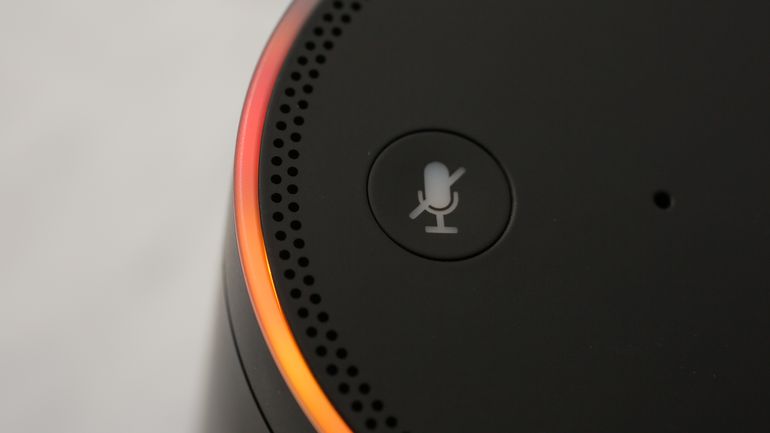By Nicole DiGiose
Last December in Bentonville, Arkansas, first responders discovered a corpse floating in a hot tub. Because an Amazon Echo was present during the night of the murder, police believed that additional evidence could have been recorded on it. Despite obtaining a warrant, police were not able to procure voice records because Amazon initially refused to comply, citing First Amendment protections. Ultimately, the electronics giant conceded after the home's resident agreed to allow the information to be handed over to the police.

Once a user voluntarily introduces an IoT gadget or digital assistant, such as an Amazon Alexa, into their home environment, are its manufacturers only allowed to record and store the information that their products were designed to act upon? Image source: CNET.
Occurrences like these lay the groundwork for complex and important conversations, raising questions about the technologies. For example, what do devices such as the Echo or Google Home record? Have we, as consumers, surrendered our right to privacy from corporations and the government by bringing these devices into our homes?
Currently, how much privacy we can expect when installing digital home assistants is unresolved. Of course, most people installing such devices into their homes know what they're setting themselves up for. In order to assist you, these devices are equipped with microphones and are designed to be listening for a command beginning with “Alexa” or “Google.” It should come as no surprise that the creators of these products thrive on tailoring ads based on the data they can collect from users.
But once a user voluntarily introduces such a device into their home environment, are its manufacturers only allowed to record and store the information that their products were designed to act upon? Or has the consumer waived those rights?
“As a legal matter, it's unresolved, which is part of what worries us about the whole thing,” ACLU senior analyst, Jay Stanley, told TechCrunch. “I think most people don’t expect that snippets of their conversation might accidentally get picked up. Smart assistants do hear trigger words when trigger words are not intended.”
Even with good intentions (or so they claim), digital home assistants open the possibility of collecting unintended information. Stanley covered the topic in an article penned for the ACLU, which was inspired by when he experienced an Amazon Echo for the first time. Basically, the device, which he assumed was all ears, made him self-conscious.
Stanley isn't the only person who feels that way.
“I would push back against a legal argument that said categorically that users don't have a reasonable expectation for privacy when they've installed one of these devices in their home,” said Electronic Frontier Foundation Senior Staff Attorney and Civil Liberties Director, David Greene. “You are trusting that third party to assert your rights, to notify you when your information is being sought. To me, those things are independent of your reasonable expectation of privacy.”
Although Amazon has not yet opened up about privacy rights when it comes to its Echo, Google (a company that has been targeted numerous times about privacy issues) explained that the history of user interaction with its assistant is stored in a manner similar to the way that the company handles search history, which allows users to control and edit voice queries.
But in the case of the Bentonville murder, what were authorities hoping to recover from Alexa? Another thought that comes to mind is whether or not Amazon is protecting the amount of data it collects without users' knowledge.
According to an article featured on Engadget, police said that they were able to pull data off the speaker, but it isn't clear what information they were attempting to access. Due to the always-on nature of the device, authorities were likely after any audio that the speaker might have picked up that night. Even though the Echo is activated by specific words, it wouldn't be shocking for the IoT gadget to be alerted to listen by accident.
The laws governing exactly what access the government has to information collected on smart home devices is up in the air, which is another fact that the Bentonville murder trial highlighted. Without a doubt, new technologies such as the Amazon Echo definitely present new challenges for old laws. Traditionally, a warrant would be required to access this manner of information, as part of the Fourth Amendment's protection against searches and seizures. But now the question is: Do voice recordings gathered by a piece of technology like a digital home assistant belong to the user or the company? Piggybacking off of that, are recordings that take place inside a home stored elsewhere instead of just locally?
Ultimately, the laws governing the data collected by IoT devices will have to be revisited, because the fact of the matter is that there are too many factors at play. While Amazon was forced to give up information in the Bentonville murder case, the fight over such information is only beginning.
If situations like this one become more common (which they likely will), it may be best to unplug every once in a while. Remember those days?
Advertisement
Learn more about Electronic Products Magazine





